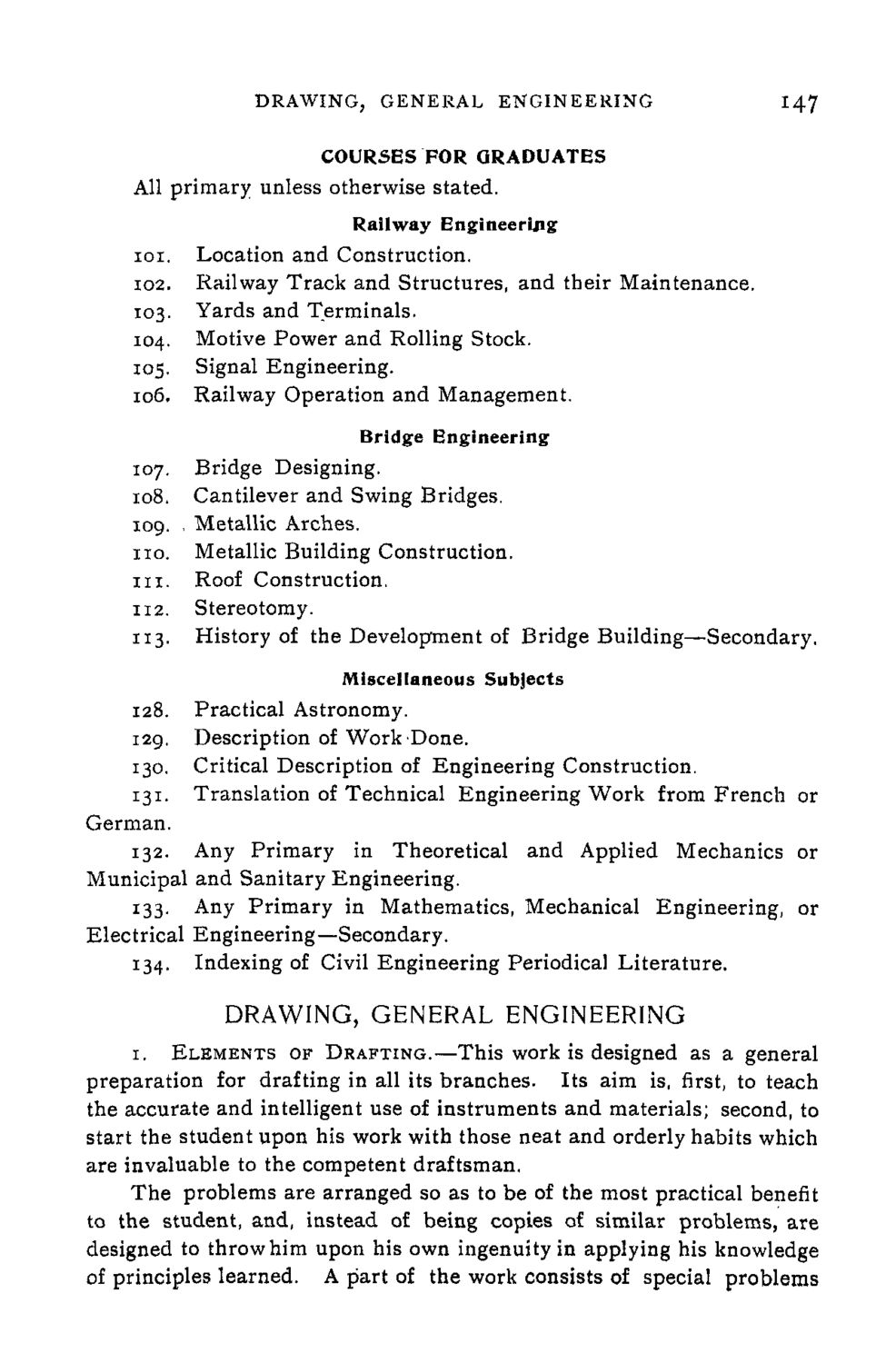Caption: Course Catalog - 1896-1897
This is a reduced-resolution page image for fast online browsing.

EXTRACTED TEXT FROM PAGE:
DRAWING, GENERAL ENGINEERING COURSES FOR GRADUATES All primary unless otherwise stated. Railway Engineering 101. 102. 103. 104. 105. 106. Location and Construction. Railway Track and Structures, and their Maintenance. Yards and Terminals. Motive Power and Rolling Stock. Signal Engineering. Railway Operation and Management. Bridge Engineering 147 107. Bridge Designing. 108. Cantilever and Swing Bridges. 109. . Metallic Arches. n o . Metallic Building Construction, in. Roof Construction. 112. Stereotoray. 113. History of the Development of Bridge Building—Secondary. Miscellaneous Subjects 128. 129. 130. 131. German. 132. Municipal 133. Electrical 134. Practical Astronomy. Description of Work Done. Critical Description of Engineering Construction. Translation of Technical Engineering Work from French or Any Primary in Theoretical and Applied Mechanics or and Sanitary Engineering. Any Primary in Mathematics, Mechanical Engineering, or Engineering—Secondary. Indexing of Civil Engineering Periodical Literature. DRAWING, GENERAL ENGINEERING 1. ELEMENTS OF DRAFTING.—This work is designed as a general preparation for drafting in all its branches. Its aim is, first, to teach the accurate and intelligent use of instruments and materials; second, to start the student upon his work with those neat and orderly habits which are invaluable to the competent draftsman. The problems are arranged so as to be of the most practical benefit to the student, and, instead of being copies of similar problems, are designed to throw him upon his own ingenuity in applying his knowledge of principles learned. A part of the work consists of special problems
|